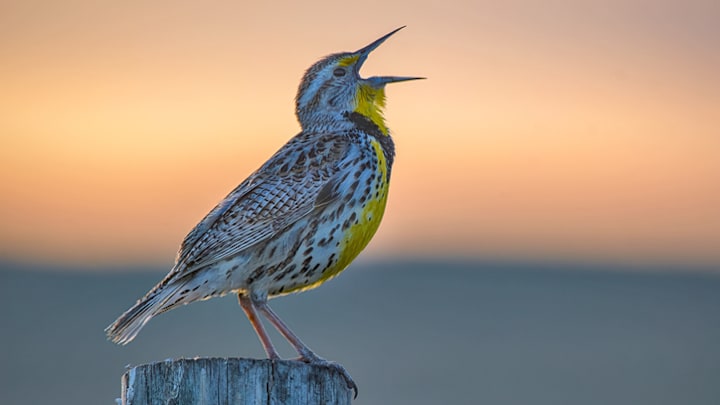Wake up early enough and, depending on where you live, you’ll likely hear a pleasant chorus of birds chirping their tiny hearts out. This a.m. avian arrangement is instinctual behavior for birds, but why?
According to the Woodland Trust, this early singing is known as the dawn chorus, and it can start as early as 4 a.m. and last for several hours. Birds do it to attract mates and warn other birds to avoid their turf. One theory as to why they opt for the wee hours to communicate these important messages is because the low visibility makes it hard to do other bird activities, like foraging. Keeping their activity level low, they opt to sing instead.
Another theory argues that birds use the morning vocals to project an image of strength. By singing with fervor, they’re letting other birds know they survived the night—no guarantee in nature—and would make for an excellent mate.
Like a good recording studio, the early morning hours also allow birds to transmit a clear tune thanks to the cooler, drier air. Because birds have distinctive chirps, that clarity helps them be more easily identified by birds within listening distance.
There used to be a prevailing theory that birds sang so much in the mornings because the sounds could travel greater distances due to less atmospheric turbulence, but it was disproven by researchers at the University of Western Ontario in 2003. They played recordings of sparrows at dawn and midday. The songs didn’t travel farther, but they were more consistent.
Because birds only have so much energy to belt one out, singing when they stand the best chance of being heard makes sense. For a bird, an early morning session is like having the perfect acoustic environment for their performance.
Have you got a Big Question you'd like us to answer? If so, let us know by emailing us at bigquestions@mentalfloss.com.
A version of this story was published in 2020; it has been updated for 2024.
